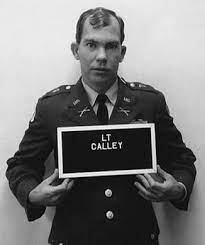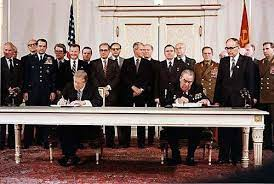Elizabethan Age begins
Queen Mary I, the monarch of England and Ireland since 1553, dies and is succeeded by her 25-year-old half-sister, Elizabeth.
The two half-sisters, both daughters of King Henry VIII, had a stormy relationship during Mary’s five-year reign. Mary, who was brought up as a Catholic, enacted pro-Catholic legislation and made efforts to restore the pope to supremacy in England. A Protestant rebellion ensued, and Queen Mary imprisoned Elizabeth, a Protestant, in the Tower of London on suspicion of complicity. After Mary’s death, Elizabeth survived several Catholic plots against her; though her ascension was greeted with approval by most of England’s lords, who were largely Protestant and hoped for greater religious tolerance under a Protestant queen. Under the early guidance of Secretary of State Sir William Cecil, Elizabeth repealed Mary’s pro-Catholic legislation, established a permanent Protestant Church of England, and encouraged the Calvinist reformers in Scotland.
In foreign affairs, Elizabeth practiced a policy of strengthening England’s Protestant allies and dividing her foes. Elizabeth was opposed by the pope, who refused to recognize her legitimacy, and by Spain, a Catholic nation that was at the height of its power. In 1588, English-Spanish rivalry led to an abortive Spanish invasion of England in which the Spanish Armada, the greatest naval force in the world at the time, was destroyed by storms and a determined English navy.
With increasing English domination at sea, Elizabeth encouraged voyages of discovery, such as Sir Francis Drake’s circumnavigation of the world and Sir Walter Raleigh’s expeditions to the North American coast.
The long reign of Elizabeth, who became known as the “Virgin Queen” for her reluctance to endanger her authority through marriage, coincided with the flowering of the English Renaissance, associated with such renowned authors as William Shakespeare. By her death in 1603, England had become a major world power in every respect, and Queen Elizabeth I passed into history as one of England’s greatest monarchs.
1980S
1989
Velvet Revolution begins in Czechoslovakia
On November 17, 1989, nine days after the fall of the Berlin Wall roughly 200 miles to the north, students gather en masse in Prague, Czechoslovakia to protest the communist regime. The demonstration sets off what will become known as the Velvet Revolution, the non-violent toppling of the Czechoslovak government and one of a series of anti-communist revolutions that marked the late 1980s and early '90s.
CIVIL WAR
1863
Siege of Knoxville, Tennessee, begins
On November 17, 1863, Confederate General James Longstreet places the city of Knoxville, Tennessee, under siege. After two weeks and one failed attack, he abandoned the siege and rejoined General Robert E. Lee’s Army of Northern Virginia.
ART, LITERATURE, AND FILM HISTORY
1839
Verdi’s first opera opens
Italian composer Giuseppe Verdi’s first opera, Oberto, conte di San Bonifacio, debuts in Milan. The premiere was held at La Scala, Italy’s most prestigious theater. Oberto was received favorably, and the next day the composer was commissioned by Bartolomeo Merelli, the impresario at La Scala, to write three more operas. In 1842, after some personal and professional setbacks, the opera Nabucco made Verdi an overnight celebrity. He would go on to compose such classic operas as Rigoletto, Il Trovatore, La Traviata, Aída, and Otello.
AFRICA
1869
Suez Canal opens
The Suez Canal, connecting the Mediterranean and the Red seas, is inaugurated in an elaborate ceremony attended by French Empress Eugénie, wife of Napoleon III. In 1854, Ferdinand de Lesseps, the former French consul to Cairo, secured an agreement with the Ottoman governor of Egypt to build a canal 100 miles across the Isthmus of Suez. An international team of engineers drew up a construction plan, and in 1856 the Suez Canal Company was formed and granted the right to operate the canal for 99 years after completion of the work.
VIETNAM WAR
1970
My Lai trial begins
The court-martial of 2nd Lt. William Calley begins. Calley, a platoon leader in Charlie Company, 1st Battalion, 20th Infantry, 11th Infantry Brigade (Light) of the 23rd (Americal) Division, had led his men in a massacre of Vietnamese civilians, including women and children, at My Lai 4 on March 16, 1968. My Lai 4 was one of a cluster of hamlets that made up Son My village in the northern area of South Vietnam.
VIETNAM WAR
1965
1st Cavalry unit ambushed in the Ia Drang Valley
During part of what would become known as the Battle of the Ia Drang Valley, a battalion from the 1st Cavalry Division is ambushed by the 8th Battalion of the North Vietnamese 66th Regiment. The battle started several days earlier when the 1st Battalion, 7th Cavalry engaged a large North Vietnamese force at Landing Zone X-Ray at the base of the Cheu Pong hills (Central Highlands).
SPORTS
1968
TV viewers become outraged as football game is cut off to air “Heidi”
On November 17, 1968, the Oakland Raiders score two touchdowns in nine seconds to beat the New York Jets—and no one sees it, because they’re watching the movie Heidi instead. With just 65 seconds left to play, NBC switched off the game in favor of its previously scheduled programming, a made-for-TV version of the children’s story about a young girl and her grandfather in the Alps. Viewers were outraged, and they complained so vociferously that network execs learned a lesson they’ll never forget: “Whatever you do,” one said, “you better not leave an NFL football game.”
U.S. PRESIDENTS
1973
Nixon insists that he is “not a crook”
In the midst of the Watergate scandal that eventually ended his presidency, President Richard Nixon tells a group of newspaper editors gathered at Walt Disney World in Orlando, Florida, that he is “not a crook.”
ART, LITERATURE, AND FILM HISTORY
1958
The Kingston Trio brings folk music to the top of the U.S. pop charts
On November 17, 1958, the Kingston Trio’s “Tom Dooley” hits #1 on the Billboard pop chart. While they might not have wanted to acknowledge it, the fans of 1960s protest folk probably owed the very existence of the movement to three guys in candy-striped shirts who honed their act not in freight cars or in Greenwich Village cafes, but in the fraternities and sororities of Stanford University in the mid-1950s. In their music as in their physical appearance, the Kingston Trio betrayed little discomfort with the sociopolitical status quo of the 1950s. Yet without the enormous profits that their music generated for Capitol Records, it is impossible to imagine major-label recording contracts ever being given to some of those who would challenge that status quo in the decade to come. Joan Baez and Bob Dylan, for instance, may have owed their musical and political development to forerunners like Woody Guthrie and Pete Seeger, but they probably owed their commercial viability to the Kingston Trio, who introduced the astonishingly fresh sound of a 100-year-old folk song into the American pop mainstream of 1958.
ART, LITERATURE, AND FILM HISTORY
2003
“The Terminator” becomes “The Governator” of California
On November 17, 2003, the actor and former bodybuilder Arnold Schwarzenegger is sworn in as the 38th governor of California at the State Capitol in Sacramento. Schwarzenegger, who became a major Hollywood star in the 1980s with such action movies as Conan the Barbarian and The Terminator, defeated Governor Gray Davis in a special recall election on October 7, 2003. Prior to Schwarzenegger, another famous actor, Ronald Reagan, served as the 33rd governor of California from 1967 to 1975 before going on to become the nation’s 40th president in 1980.
NATURAL DISASTERS & ENVIRONMENT
1421
Thousands die in massive flood at European shores of North Sea
On November 17, 1421, a storm in the North Sea batters the European coastline. Over the next several days, approximately 10,000 people in what is now the Netherlands died in the resulting floods. The lowlands of the Netherlands near the North Sea were densely populated at the time, despite their known vulnerability to flooding. Small villages and a couple of cities had sprung up in what was known as the Grote Waard region. The residents built dikes throughout the area to keep the water at bay, but fatal floods still struck in 1287, 1338, 1374, 1394 and 1396. After each, residents fixed the dikes and moved right back in after the floods.
CRIME
2003
Washington, D.C. sniper John Muhammad convicted
On November 17, 2003, ex-soldier John Muhammad is found guilty of one of a series of sniper shootings that terrorized the metropolitan Washington, D.C. area and dominated national headlines in October 2002. Police charged that Muhammad and his 17-year-old accomplice, Lee Boyd Malvo, killed 10 people and wounded three others during a three-week killing spree. After just over six hours of deliberation, a jury convicted Muhammad of the October 9, 2002, shooting of Dean Meyers while he pumped gas at a Sunoco station in Manassas, Virginia.
CRIME
1972
A wealthy heiress is murdered by her son
Wealthy socialite Barbara Baekeland is stabbed to death with a kitchen knife by her 25-year-old son, Antony, in her London, England, penthouse. When police arrived at the scene, Antony was calmly placing a telephone order for Chinese food.
COLD WAR
1969
SALT I negotiations begin
Soviet and U.S. negotiators meet in Helsinki to begin the Strategic Arms Limitation Talks (SALT). The meeting was the climax of years of discussions between the two nations concerning the means to curb the Cold War arms race.
AMERICAN REVOLUTION
1777
Articles of Confederation submitted to the states
On November 17, 1777, Congress submits the Articles of Confederation to the states for ratification. The Articles had been signed by Congress two days earlier, after 16 months of debate. Bickering over land claims between Virginia and Maryland delayed final ratification for almost four more years. Maryland became the last state to approve the Articles on March 1, 1781, affirming them as the outline of the official government of the United States. The nation was guided by the document until the implementation of the current U.S. Constitution in 1789.
















Comments
Post a Comment